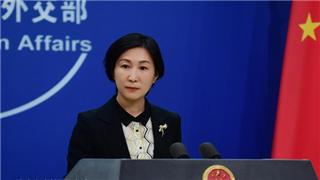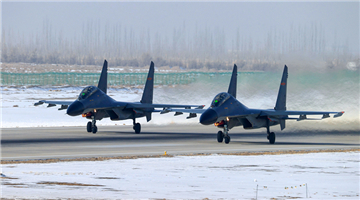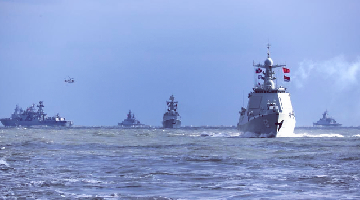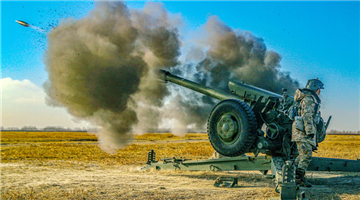By Gao Qiao
US President JoeBiden signed on December 23 the National Defense Authorization Act for Fiscal Year 2023 (NDAA FY2023) into law, whose total volume of US$857.9 billion topped the previous year by US$80 billion.
Li Zheng, associate researcher at the Institute of American Studies, China Institutes of Contemporary International Relations (CICIR), attributed the continuous rise of America's defense budget to several factors. One, the mounting inflation in the US is the direct reason. Two, the US Congress takes military spending as a key driver to pump up local economic recovery and boost employment, and the annual defense budget has become an important source of funding for local areas. Three, the US is facing pressure in external outlay as the assistance to Ukraine, the anti-terror war and the Pacific Deterrence Initiative in the Asia Pacific have notably increased its overall military spending.
The Republic and Democratic parties have never been so united on the security domain about the necessity to maintain America's global hegemony, analyzed Teng Jianqun, a researcher at the China Institute of International Studies. The NDAA shows that American political elites intend to keep up their global leadership in the next 10 to 20 years, focusing their security strategy and foreign policies on the Asia Pacific for the so-called major country competition. Business groups in the country, on the other hand, set their eyes more on immediate interests, hoping to make more hay out of the geopolitical tension in Europe. That explains the parallel arrangements in the NDAA for the two regions.
Teng also pointed out the four features in America’s military buildup as reflected by the NDAA FY23. The first is that terms like “challenge” and “threat” have become a bipartisan consensus and a key reason to ask for more fiscal appropriation. The US has kept hyping up the so-called “major country threats” in the security domain and using that as an excuse to split taxpayers’ money among military complexes and other interest groups. In fact, only by continuously exacerbating the tension and political fear and demonizing the rivals can the military complexes find an excuse to justify the whopping military spending. The second is that the rising defense budget is closely linked to the “major country strategic competition” put forth by the US government. The NDAA proposed to invest at least US$11 billion in the Pacific Deterrence Initiative and deploy offensive/defensive missile systems in Alaska, ROK, Japan, China’s Taiwan and the Philippines, with the purpose of winning the so-called “major country competition”against China. The third is that the US has come to a period to upgrade its weapons and equipment. Upgrading the “triad” nuclear strike forces, other conventional weapons and modern military equipment require an enormous amount of money. The fourth is that with the extensive application and rapid progress of information technology, the US has to invest more in high and new military technologies in order to maintain its global domination in the area.
Even America’s peak military spending during the Cold War is dwarfed by what it is spending today, when politicians are more concerned about whether the Pentagon has enough to squander than whether the general public has decentlife, which is a very dangerous tendency. The call for more military expenditure is primarily driven by the “unprecedented threats” from China, but stressing China as an “extreme military threat” cannot be a more wrong description of the essence of Sino-US competition, and it largely exaggerates China’s current military strengths and the possibility of it taking any military action in the future.
In the meantime, Li Zheng said America’s growing military input in the Asia Pacific in recent years has tightened its military connections with regional countries, which may gradually strip certain countries of their military initiative and accelerate the degradation of the regional security situation.
Teng Jianqun further pointed out that the military arrangements revealed by the latest NDAA will impose more negative impacts on global security. On the one hand, international cooperation will be further disrupted and America’s beggar-thy-neighbor and clique-forming Cold War mentality will polarize the international community, making it more difficult for countries to stay neutral. On the other hand, while busy muddying the water in the Asia Pacific and aggravating tension across the Taiwan Straits and on the Korean peninsula, the US is at the same time inflaming public discourse at home to increase defense budget. In addition to liningits pocket out of regional turmoil, it is also spurring allies to increase their military budget and instigating a regional arms race, which is a serious hazard for regional peace and stability.











